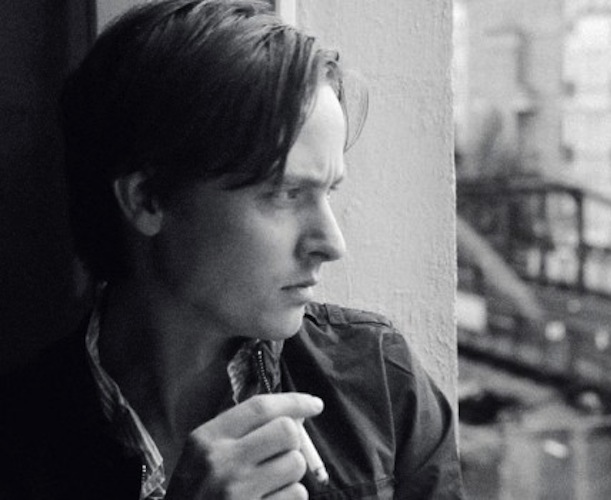Film Review: “A Coffee in Berlin” — A Funny Film From Germany?
A Coffee in Berlin is described accurately in its publicity as “a slacker comedy.”
Boston Area Film Schedules – What is playing today, Where and When
A Coffee in Berlin, directed by Jan Ole Gerster. At the Kendall Square Cinema, Cambridge, MA.
By Gerald Peary
If A Coffee in Berlin were an American independent feature, say A Cappuccino in Austin, it would never be considered for an Academy Award in a thousand years. Too slight. But the actual A Coffee in Berlin, a small-scale, barely plotted feature from director, Jan Ole Gerster, was the big winner at the 2013 German version of the Oscars. Clearly, the Germans were overjoyed at having a first-time filmmaker of obvious talent, and with a youth-friendly personal vision. It’s been a long time coming since Run Lola Run (1998), made by Gerster’s friend, Tom Tykwer.
But the biggest thing going for A Coffee in Berlin is that some of it is funny. A funny German film? Try to think of one. And the humor, when it comes, is daringly irreverent, a non-Jewish German filmmaker making impolitic jokes about Nazism.
A Coffee in Berlin is described accurately in its publicity as “a slacker comedy.” In the US, there have been dozens of these in recent times, probably ten a year just at the SXSW Film Festival. The oft-repeated mumble-core narrative. Post-collegiates stumble about, failing in love, disheartened by dead-end jobs. But they are too passive or indifferent to find their way to something meaningful. If there is something meaningful.
A Coffee in Berlin adheres to this American indie formula. We are given a day and a night of Niko (Tom Schilling) a law school dropout who, first scene of the movie, is kicked out by his Jean Seberg-in-Breathless-looking girlfriend. He moves his boxes into an empty apartment. He meets with his golf-playing, disapproving dad, who cuts him off financially. Niko takes his losses in stride, as, by afternoon, he’s minus both love and money. What does Niko want for his life? On this day, it’s a decent cup of java.
“Anti-heroes have always been the people with whom I’ve identified,” Gerster has said, interviewed. His favorites are Holden Caulfield, Jack Nicholson’s Bobby Dupea in Five Easy Pieces, and François Truffaut’s autobiographical stand-in, Antoine Doinel (Jean-Pierre Leaud). Niko is their laconic, expressionless German cousin. Is he worth watching? In the sweet hands of Tom Schilling, modest and mellow, Niko is a protagonist who’s sort of fun to spend time with. Even if he does practically nothing.
The very funny scene: Niko wanders with an actor friend. Matze, to a Berlin movie set, where a woeful Holocaust melodrama is being filmed. The plot is described proudly by the male lead, a German actor strolling about in his Third Reich costume. Before the war, his character falls in love with a bookseller, not knowing she’s Jewish. During the war, he’s a “Nazi with a conscience” who meets again the Jewess, Hannah, and must decide whether to send her away. “Save, betray, save, betray,” he describes his dilemma. But all becomes clear when Hanna reveals that they have, Jacob, a little son!
This celluloid schmaltz, fake humanism, fraudulent anti-fascism, is a tart parody of the kind of movies actually produced these days, especially in Germany and the Czech Republic. I know them well: my wife, Artistic Director of the Boston Jewish Film Festival, is sent such “Jewish-themed” (sic) films regularly, with the expectation that, deeply moved, she will want to program them.
“Danke” to Gerster for having the nerve to poke holes in such bogus German cinema. When is the last time you saw a German film where “Heil Hitler” is the punchline of a joke? Have you ever seen a black-humor scene like this one in Coffee in Berlin: on the movie set, during a break, an actor in SS regalia and another actor wearing a yellow star casually share a cigarette. Pure Billy Wilder!
There’s one more yuck-a-loud scene in the movie. Niko and Matze attend an experimental dance program. What you get on stage is a masterful compendium of every emotive dance cliché post-Martha Graham. Faux Pina Bausch. Hilarious! And then? A Coffee in Berlin goes the sadly downer way of almost every German movie. Melancholy prevails. The woman that Niko has gone to watch dance turns on him in psychopathic anger. Niko tries to recover by drinking vodka in a bar. On the next barstool is a drunken, ravaged, forlorn old man. Nazis again, but this time serious. The man talks on and on and on about what makes him wracked with guilt. On Kristallnacht (November 1938), he was concerned only if the broken glass everywhere would puncture the tires of his bicycle.
Spoiler alert: someone dies at the end of A Coffee in Berlin. But the comedy has long been buried.
Gerald Peary is a professor at Suffolk University, Boston, curator of the Boston University Cinematheque, and the general editor of the “Conversations with Filmmakers” series from the University Press of Mississippi. A critic for the late Boston Phoenix, he is the author of 9 books on cinema, writer-director of the documentary For the Love of Movies: the Story of American Film Criticism, and a featured actor in the 2013 independent narrative Computer Chess.
Tagged: A Coffee in Berlin, German Film, Jan Ole Gerster, slacker comedy

